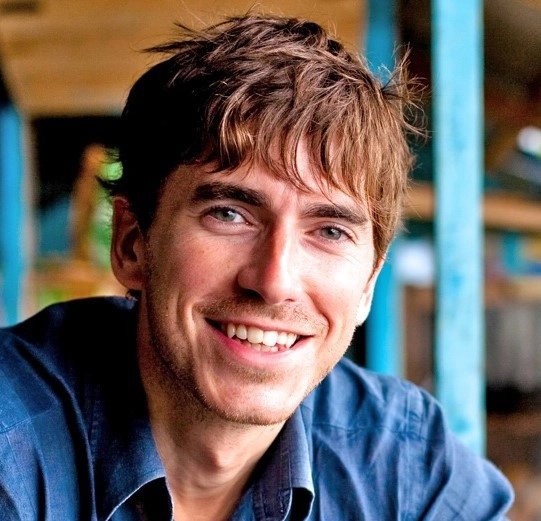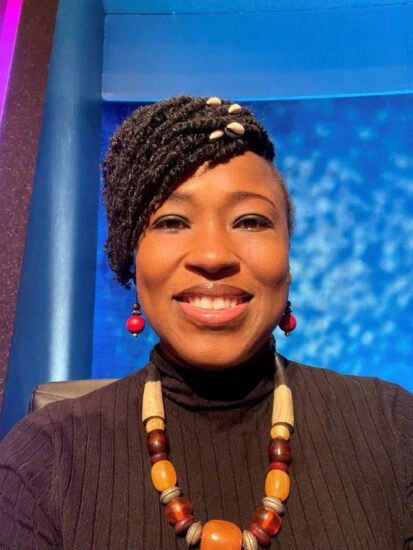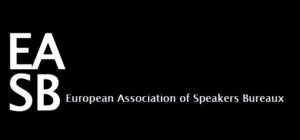Annual Events:
Fees:
*Fees are a guide only. Exact cost will be dependent on requirements and are subject to change.
Dr Harry Witchel
Dr Harry Witchel is a highly respected Physiologist a TV Scientist and Body Language expert. He is also the Discipline Leader in Physiology Brighton and Sussex Medical School, and he is phenomenal speaker.
About Dr Harry Witchel
Dr Harry Witchel is well-known for his practical application and clear science explaining communication, body language, and the relationship between the mind and the body. He talks about how nonverbal communication, including body language, impact politics, business, the law and negotiation. His unique training have included lawyers, musicians, and surgical recovery patients.
Dr Harry Witchel’s articles have appeared in high profile publications such as ‘The National Review’ (USA), ‘Total Politics Magazine’ and ‘The Financial Times’. Highlights from among his hundreds of appearances on radio and television include shows ranging from USA Discovery Channel’s ‘The Secrets of Body Language’ to BBC television’s ‘Newsnight’ with Jeremy Paxman.
In 2004, he received the national honour of being awarded The Charles Darwin Award Lecture by the British Science Association. He has been an author of over 50 peer reviewed articles in the scientific literature. In 2011, he published a book on how humans establish social territory, entitled ‘You Are What You Hear: How Music and Territory Make Us Who We Are.’
In constant demand from brands and marketign companies, Dr Harry can list a huge number of client who include Nike, Honda, Nokia, Boehringer Ingelheim, Heathrow Airport and the Taylor-Wessing Law Firm.
Dr Harry Witchel is particularly well known for his music presentations with live music and his expert dating workshops at the Dana Centre and British Library. He likes to use science to engage with young people, to help ensure enough excellent and talented young people are inspired to become the scientists of tomorrow.
He is also a very popular lecturer at Science Festivals throughout the UK. These include the Edinburgh International Science Festival, The BA Festival, the Winchester Festival of Art and the Mind, and the Cheltenham Festival of Science, where he has given a series of sold-out lectures every year since its inception.
Harry has also consulted for the “Explore at Bristol” Science Museum on genetics. He was chosen as the plenary lecturer at the Royal Society for the National Forum of Genetic Futures. This is a year long celebration for young people of the discovery of the DNA double helix by Watson and Crick. In 2004 he received the national honour of being awarded by the British Association for the Advancement of Science “The Charles Darwin Award Lecture.”
Body Language Laid Bare
Is it possible to tell whether somebody is lying just by looking at them? How do some people seem to transmit an air of command that others feel compelled to respond to? Can you tell whether somebody fancies you before you take a chance on talking to them? TV Scientist and Body Language Expert Dr. Harry Witchel of Brighton and Sussex Medical School is your guide through the fascinating world of non-verbal communication, in which even something as simple as a smile can mean anything from “I love you” to “I’m going to kill you.”
In this event, Harry — who has explained body language on ‘Big Brother’ and ‘Newsnight’ with Jeremy Paxman — takes you beyond the pop science books to uncover what you will never see on television: the real science behind non-verbal communication. He debunks the worst of the body language mythology, and he demonstrates how body language does (and sometimes does not) reveal the truth about what is really occurring in a person’s mind — and with their emotions.
The Body Language of Dating
Do first impressions really determine what people think of you? Nonverbal communication is so much of the story about what happens when people go on a date, yet most people cannot put their finger on exactly how it makes things go right or wrong. In this interactive session Dr Harry Witchel of the Brighton and Sussex Medical School demonstrates the power of the subtle movements of rapport as well as the simple movements that turn a chat up line into a friendly conversation. By being able to transmit the signals you want, you can spend more time with the people you want and make the conversations more fun.
The Body Language of Love
Is there more to starting a relationship than GSOH? What is the secret to romantic chemistry? From the psychology of nonverbal communication to the pseudoscience of physiognomy and even instant attraction based on facial features, award-winning scientist and television commentator Dr. Harry Witchel demonstrates the ins and outs of getting to know someone with demonstrations and exercises for you to do. We will even have some fun transmitting polite but sexy or mysterious signals, and learning to enjoy the ambiguity that makes flirting playful. The body language of love is more fun to guess than your star sign.
Negotiation Under The Microscope
Negotiation is everywhere: not just in business deals or outside the courtroom. They happen with our partners, our children, and the strangers we meet in passing. Why do the most tedious negotiating behaviours — from haggling to nagging — reappear in culture after culture? Even whether to have a negotiation is under negotiation. Why don’t we streamline all the unnecessary negotiations in life and reserve negotiation for big deals and complex transactions? Because man is a negotiating animal — we have a natural instinct to negotiate. This talk spans from altruistic monkeys that capture food for others to nationwide labour unions fighting insurmountable odds, putting these negotiations under the microscope to show what was the difference that made the difference. Dr. Harry Witchel — an expert on body language and communication — looks at real life examples of negotiation that range from the fascinating and provocative to the downright bizarre in order to show you how the confident become kings in the jungle, but why sometimes the understated and reasonable prevail in the end.
Why Do We Laugh?
Is it true that animals laugh, and if so, why do animals laugh? Award-winning psychophysiologist Dr. Harry Witchel explores the basics of laughter; how it works, why we do it, and how necessary having a GSOH really is. Is laughter a key element in being social, or is being social a key element in our laughing? From the extremes of seizures that can lead to uncontrolled laughter to simple physiological changes in your body caused by laughter, the science of laughter has progressed to suggest that what we learn about laughter may be important to medicine generally. In this fun lecture and demonstration, you will see how the brain makes sense of our topsy-turvy world, and why this sometimes leads us to laugh.
The Chemicals of Pleasure
Why do we experience pleasure and why are pleasurable experiences, from skydiving to eating chocolate, so hard to resist? Prepare yourself for a journey through the brain’s pathways of pleasure — in this interactive demonstration Dr Harry Witchel, winner of the BA’s “Charles Darwin Award lecture” in 2004, will show you how your brain reacts to sex, music, thrill seeking and addiction to drugs, and how these pleasurable sensations all depend on arousal, the physiology of the body, and chemicals in the brain.
Return to the Pleasure Principle: from the brain to reality TV to your life
The choices we make are often driven by pleasure, even though we do not always like to admit it. What makes pleasure stay, and why does it so often go, are the critical pieces necessary for understanding how to make pleasure work FOR you rather than against you, so that it can play its natural role in making your life fulfilling.
How you can get more pleasure in your life: an all day workshop
Dr. Harry Witchel, Award-winning lecturer, explains how to get more pleasure in your life, and how pleasure can be a positive force for your life and for those around you. What makes pleasure stay, and why does it so often go, are the critical pieces necessary for understanding how to make pleasure work FOR you rather than against you, so that it can play its natural role in making your life fulfilling. In the last decade a series of amazing breakthroughs in both neuroscience and psychology have underscored how we get pleasure: from extreme sports to chocolate, from love to music, all the way to cigarettes & alcohol, pleasure has certain traits, however you get it. However, skydivers are different from shopaholics, and in many cases men are different from women. The essential differences in personality make an enormous difference in what you are most likely to enjoy. With quizzes for you to find out more about your personality, and group exercises to demonstrate visibly and viscerally how pleasure works, this will be a time for exploring your relationship with pleasure and finding out about new things to try, as well as learning about how neuroscience has discovered the way pleasure works in the mind.
The workshop will cover: arousal (its role in pleasure and emotion, how it works in the brain and body), the differences between enjoying and craving, different ways of measuring pleasure, what role personality plays in pleasure, how too much of a good thing is not so good (satiety and boredom), what psychotropic drugs do and do not do, mechanisms for making the most of music, laughter, and some surprising tips from the new research on how making small changes can make a difference.
Adventures of a “Can-do” Scientist: Fun with Science and Multinational Corporations
Dr Harry Witchel presents a dynamic, multimedia presentation of various commercial scientific experiments he has been involved with. From the physiology and psychology of buying a mobile phone or a car to performing a lie detector test on a world class athlete just before her participation in the Olympics.
Dr Witchel explains how science has become a central part of the commercial world and how its influence has made a difference in the way corporations sell themselves and their products and services to us.
The Psychology of Hair
Do blondes have more fun? Are brunettes more reliable? Are redheads more fiery? Or is it all just false perceptions? Dr. Harry Witchel of Brighton and Sussex Medical School takes you on a tour of hair and its transformative effect on us, psychologically. With surprising facts about how hair colour can change your salary and how politicians have their hairstyles dictated to them by pollsters, this lecture gives you the low down on what’s on top. From whether balding men are less virile to whether bearded men really are hiding something, the psychology of how we understand hair is sometimes provocative and sometimes comic, but always something you can delight in.
The Subjective Experience of Time
Why does time fly when you are having fun? Or drag on a Monday morning? Dr. Harry Witchel of Brighton and Sussex Medical School takes you on an eclectic trip through the mind. Exploring sex, sport, meditation and pain, discover the chemical and psychological factors involved in the fascinating phenomenon of your brain’s conception of time.
How to really detect lies told on television
Microgestures are unconscious and brief changes of either body language or voice tone that leak emotions or information that the person is attempting to conceal. Unlike live performance, on television a person’s movements can be played back and slowed down, so that our perceptions of them can be altered by commentary. In essence, gossip can be made to have an almost scientific quality, while the exigencies of rapid-paced television give science an almost gossipy quality. Examples are given to show how media changes our perceptions and blurs the distinctions between what we believe, what we know, and what we can prove.
Testimonials
"The workshop was very well received and participants felt that they had learnt a number of issues regarding body language… The information contained in the workshop would have a number of practical uses in a business context."
Amardeep Gill, Chair of Birmingham Future’s Successful Development Team & Pinsents law firm
"I am just writing with a formal thank you for giving such a great talk at the Royal Institution this past spring season. I hope you enjoyed the evening as much as the audience… Congratulations, and once again, many thanks."
Jonathan Black, The Royal Institution, London
"We thoroughly enjoyed having you on the programme, and your contribution was well received… Thank you again for being such a wonderful guest."
Jacqui Dales, CBBC Television
"Suitably scientific! hilarious. a joy as ever. Let’s do another one soon."
Chris Cook, Lexis PR
"You were a fantastic spokesperson"
Antonia Scherer, Lexis PR
"Harry, you are a leading light of the Festival. We couldn’t do any of it without your brainpower, imagination and sense of fun. Thank you for your support"
Cheltenham Festivals
"I wish everyone was so efficient in organising an interview."
Sue James - BBC
"Thank you so much for that lively and brilliant lecture/presentation for the ICR Seminar. You certainly stimulated the audience, and people are still talking about it."
The Institute For Cultural Research







